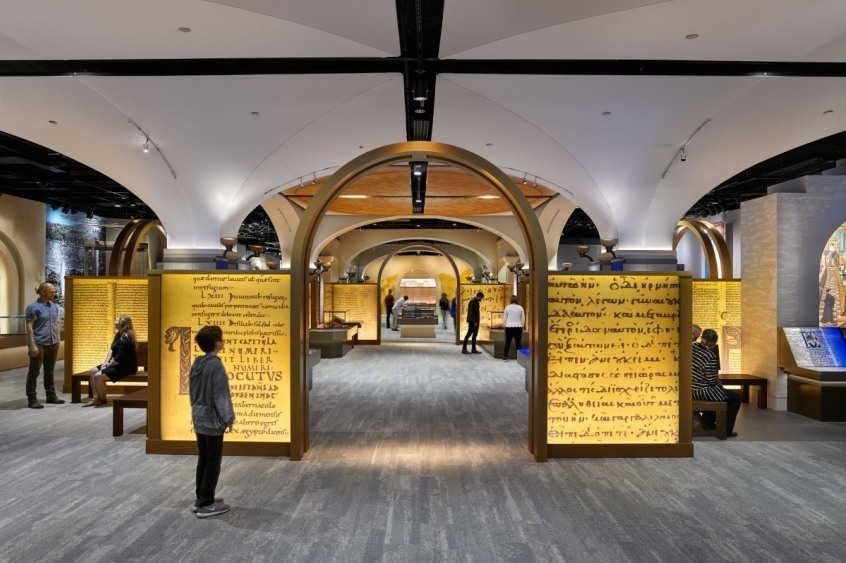
An Oxford professor has been accused of selling ancient fragments of papyrus without permission to the Museum of the Bible in Washington DC.
The Egypt Exploration Society (EES) said that 13 texts from its collection, 12 on papyrus and one on parchment, had found their way into the Museum of the Bible without authorisation.
These fragments, from the EES' Oxyrhynchus Papyri collection stored at Oxford University, were "all with biblical or related content", the charity said.
A list published by the organisation said that the fragments included passages from Genesis, Exodus and Romans among other sections of the Bible.
The charity alleges that 11 of the missing fragments came to be in the possession of the Museum of the Bible after being sold to the US craft store chain, Hobby Lobby, by Dirk Obbink, an Oxford professor in papyrology.
Hobby Lobby president Steve Green, an evangelical Christian, opened the $500m Bible museum in the US capital two years ago.
The EES said that it had identified the missing fragments with the help of photographs provided by the museum and that the museum's board of trustees "has accepted the EES claim to ownership....and is arranging to return them to the EES".
The organisation said that in August 2016, it had decided not to re-appoint Professor Obbink as a General Editor of the Oxyrhynchus Papyri "primarily because of unsatisfactory discharge of his editorial duties, but also because of concerns, which he did not allay, about his alleged involvement in the marketing of ancient texts".
Then in June this year, the organisation banned him from any access to its collection "pending his satisfactory clarification" of an alleged contract drawn up in 2013 between the professor and Hobby Lobby over the sale of six items "including four New Testament fragments probably of EES provenance".
The alleged contract was published in June on the blog of Dr Brent Nongbri, scholar and author of God's Library: The Archaeology of the Earliest Christian Manuscripts, prompting the EES investigation.
The EES said that Oxford University has launched its own investigation into the professor following the claims.
The EES added in its statement: "The EES is also pursuing identification and recovery of other texts, or parts of texts, which have or may have been illicitly removed from its collection.
"Systematic checking of the EES collection will be a long process because of its size. Meanwhile, our primary aim remains the authoritative publication for public benefit of the texts of all types in our collection.
"We cannot comment here on any broader legal issues arising from these findings, except to note that they are under consideration by all the institutions concerned."
The Museum of the Bible said in a statement that the items in question had been acquired by Hobby Lobby "in good faith" and that it had a "commitment to ethical handling of all items in its care and its approach to collections research".
"We have collaborated with EES in the investigation, have shared all relevant documentation with them, and will continue to assist them in recovering other items that may have been removed without authorization from their holdings," said Dr Jeffrey Kloha, Chief Curatorial Officer at Museum of the Bible.
Professor Obbink has been contacted for comment.













